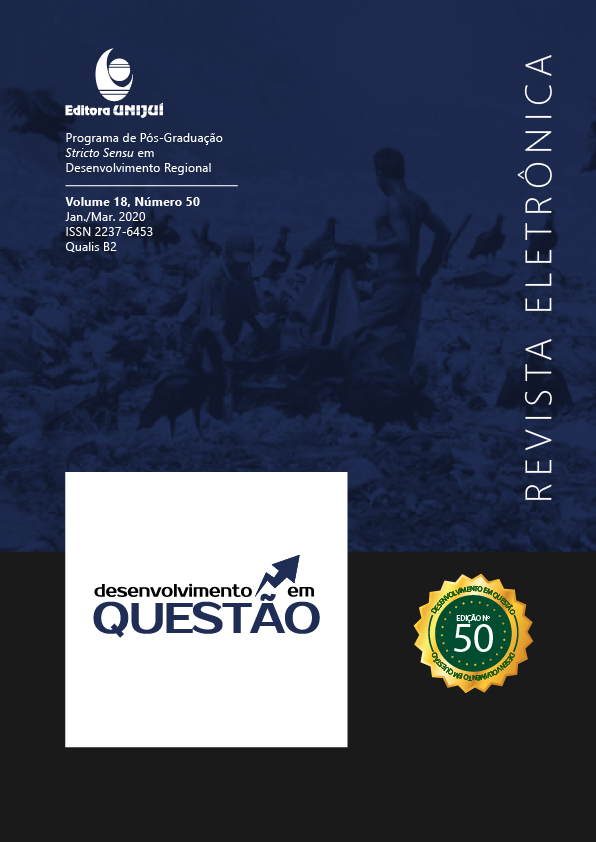Regional Development and Gender: mapping of graduate training and intellectual production in the Urban and Regional Planning PPG of the Southern Region of Brazil
DOI:
https://doi.org/10.21527/2237-6453.2020.50.41-54Keywords:
Regional Development; Gender; Professor; South region; Brazil.Abstract
Studies on regional development and gender seek to show the imbrications between gender, power and space relations, their permanence and possibilities for change. This article sheds light on the presence of women (their graduate training and access to productivity scholarship in academic research) in the Graduate Programs in Urban and Regional Planning of the Southern Region of Brazil. Strictly speaking, one finding is that there are no major differences between women and men, except for the distribution of research productivity scholarships. In the intellectual production on gender, in which women are in greater number, they deal with themes such as: rural and urban space, moving spatiality, vulnerabilities, sexuality, social groups and institutions. The presence of gender studies in regional development can give greater openness to regional studies that have taken the region as cut and containment, offering them, in turn, a relational understanding of the region, which brings with it the liberating potential of binary identities and hierarchies of race and class.
Downloads
Published
How to Cite
Issue
Section
License
By publishing in Revista Desenvolvimento em Questão, authors agree to the following terms:
All works are published under the Creative Commons Attribution 4.0 International License (CC BY 4.0), which allows:
Sharing — to copy and redistribute the material in any medium or format;
Adaptation — to remix, transform, and build upon the material for any purpose, even commercially.
These permissions are irrevocable, provided that the following terms are respected:
Attribution — authors must be properly credited, a link to the license must be provided, and any changes made must be indicated.
No additional restrictions — no legal or technological measures may be applied that legally restrict others from doing anything the license permits.
Notices:
The license does not apply to elements that are in the public domain or covered by legal exceptions.
The license does not grant all necessary rights for specific uses (e.g., image rights, privacy, or moral rights).
The journal is not responsible for the opinions expressed in the articles, which are the sole responsibility of the authors. The Editor, with the support of the Editorial Board, reserves the right to suggest or request modifications when necessary.
Only original scientific articles presenting research results of interest that have not been previously published or simultaneously submitted to another journal with the same purpose will be accepted.
Mentions of trademarks or specific products are intended solely for identification purposes and do not imply any promotional relationship by the authors or the journal.
License Agreement (for articles published from 2025 onward): Authors retain the copyright to their article and grant Revista Desenvolvimento em Questão the right of first publication.











